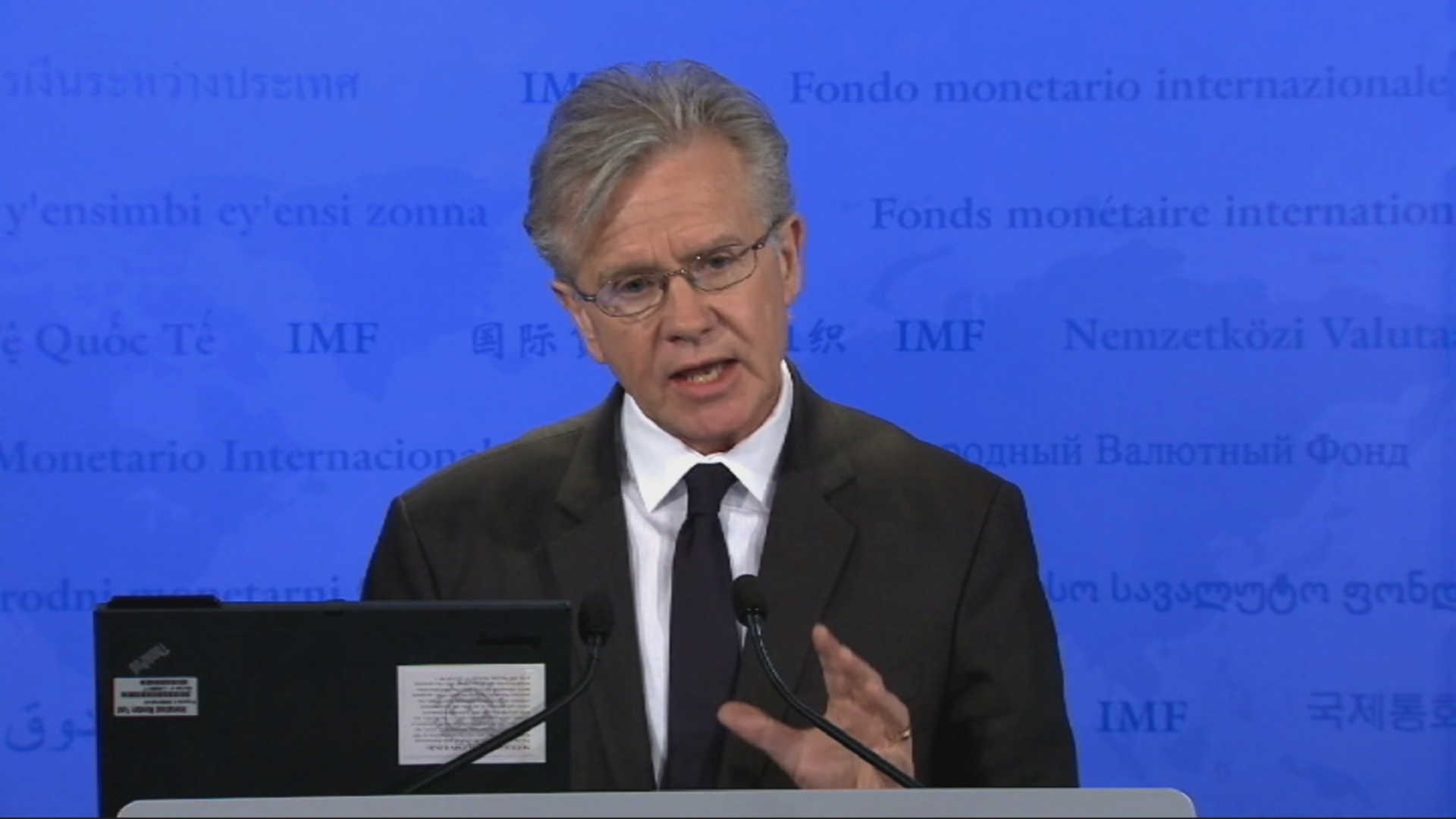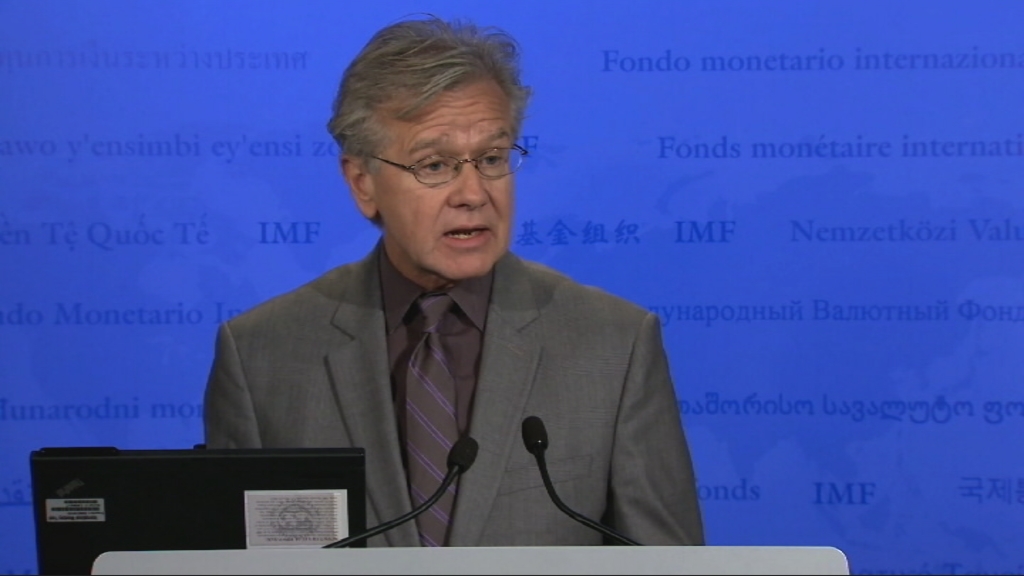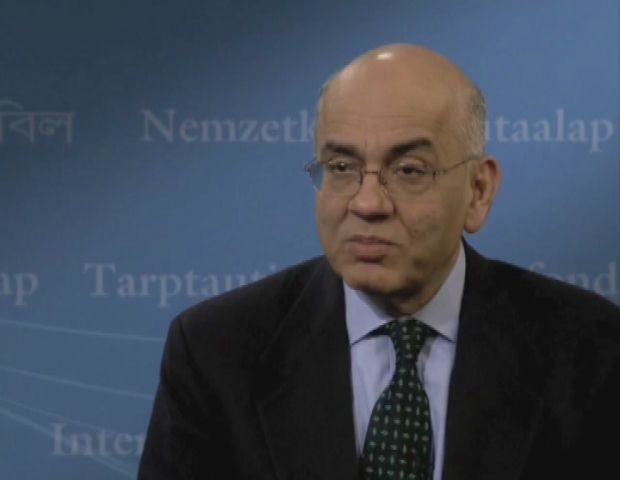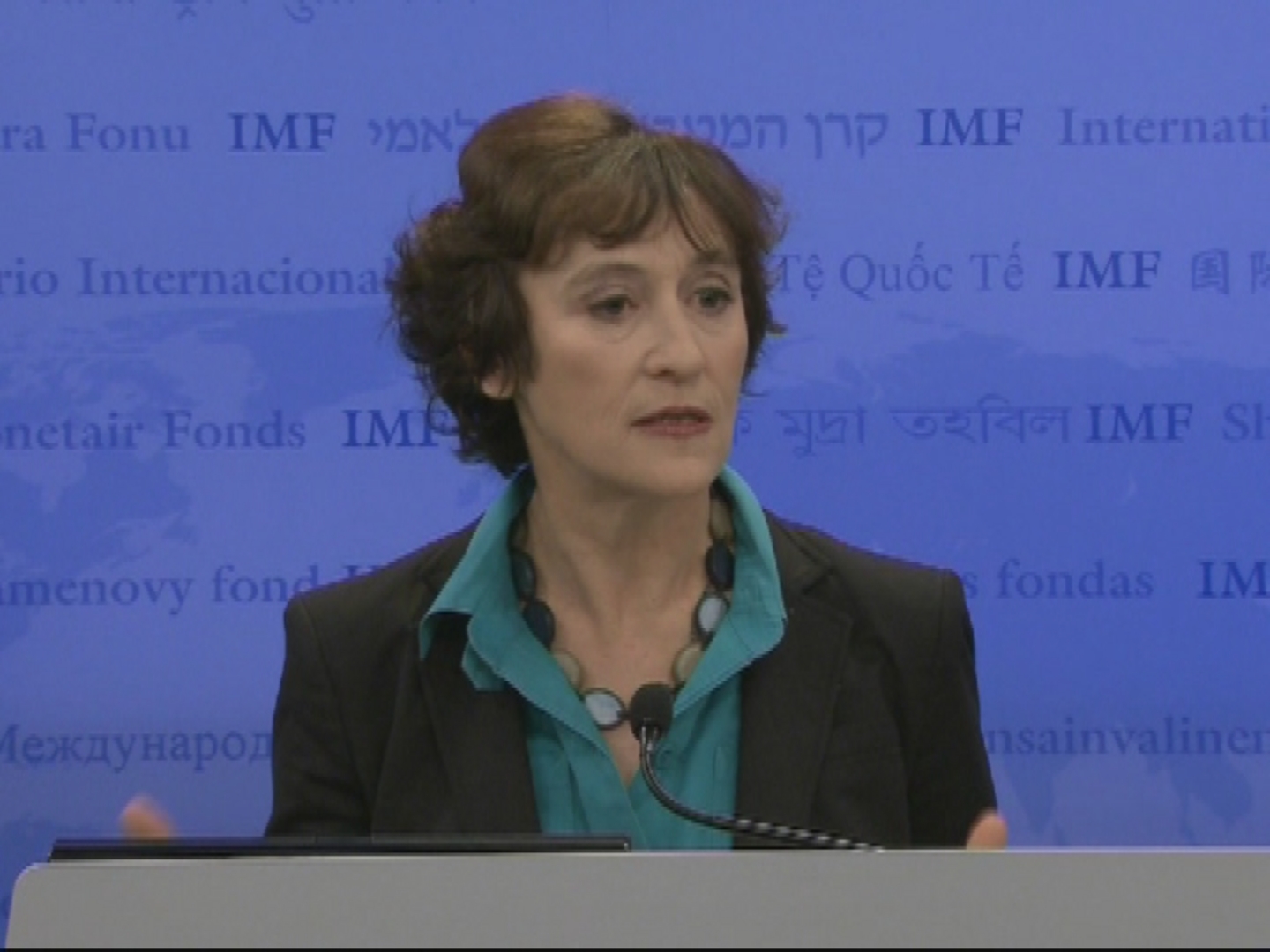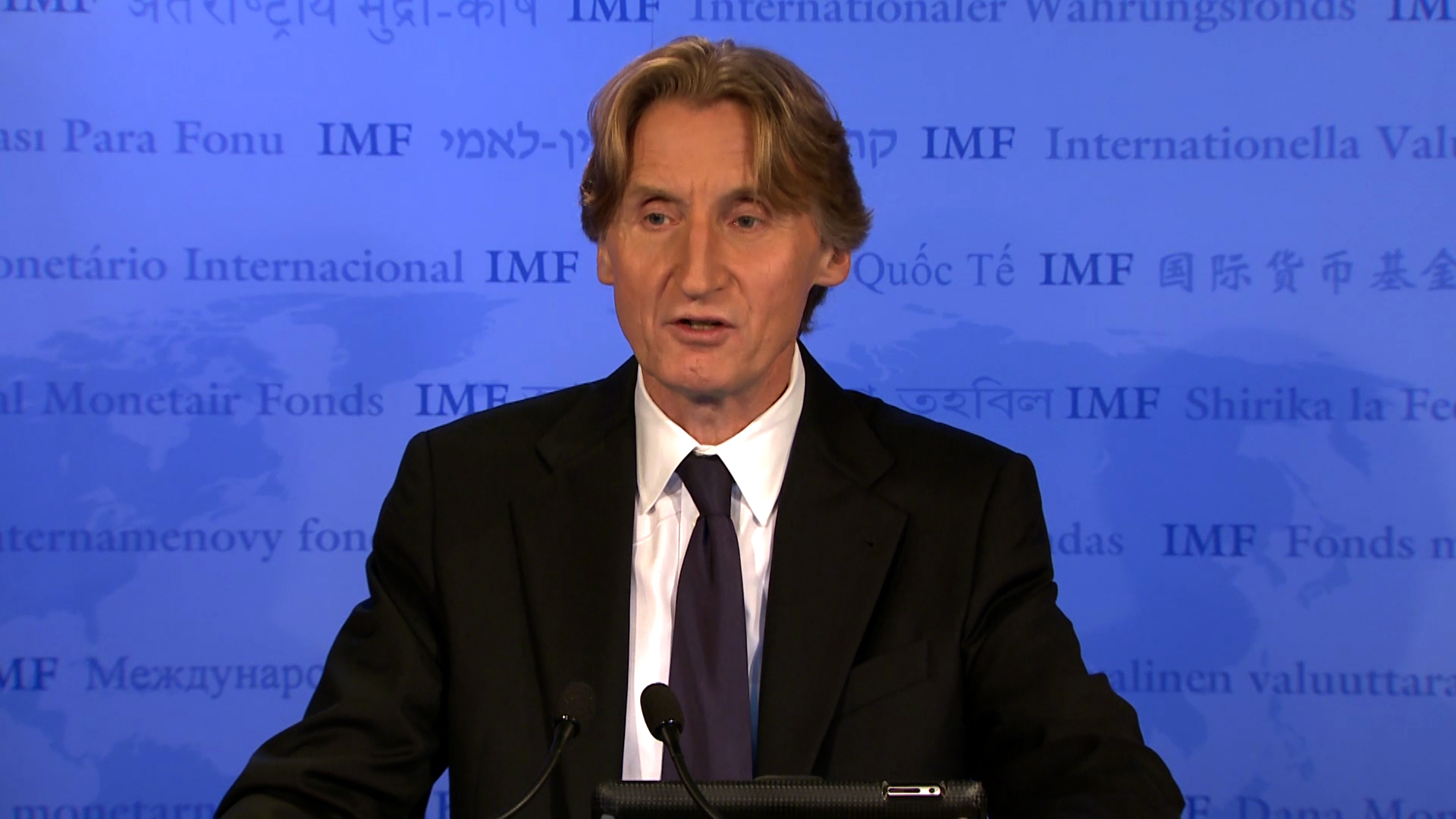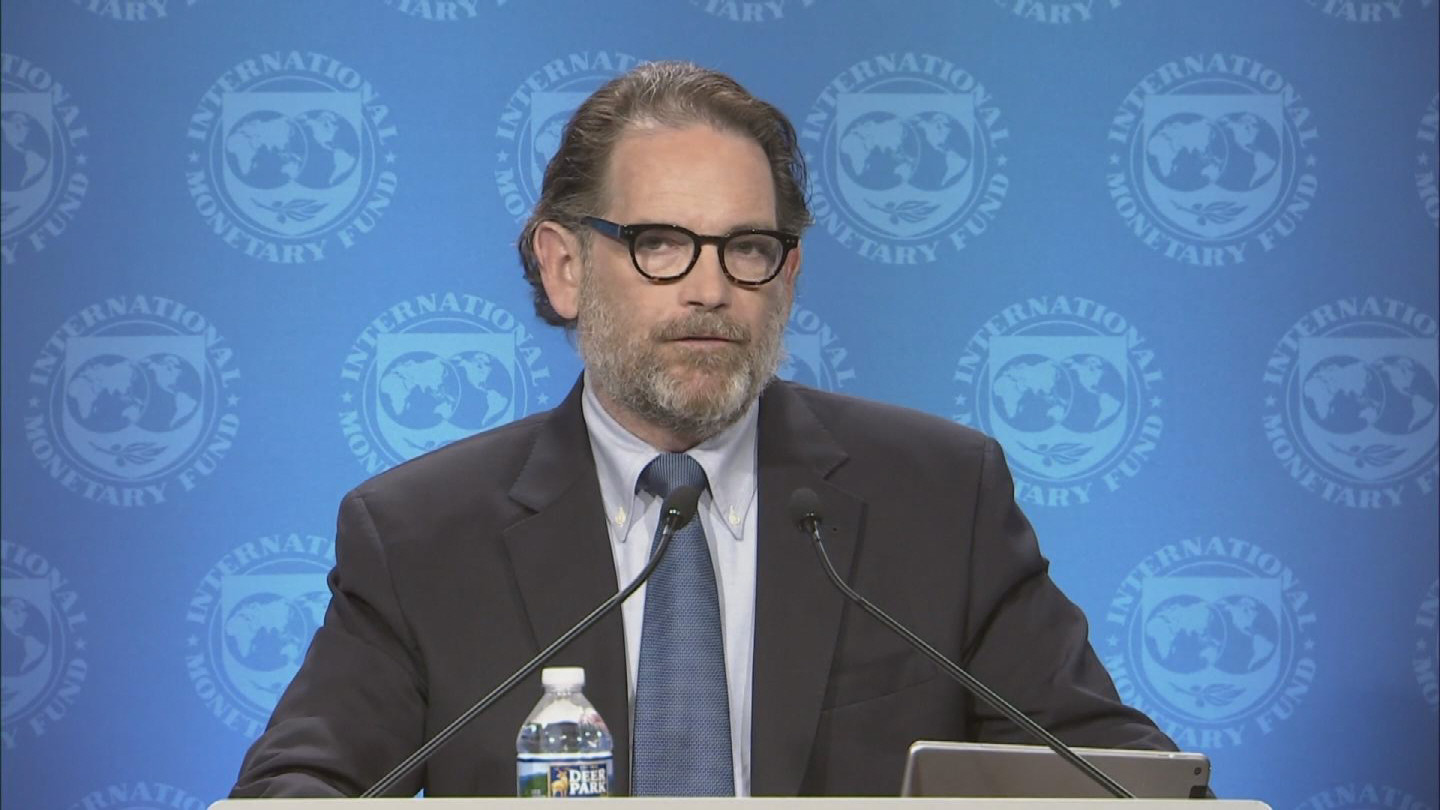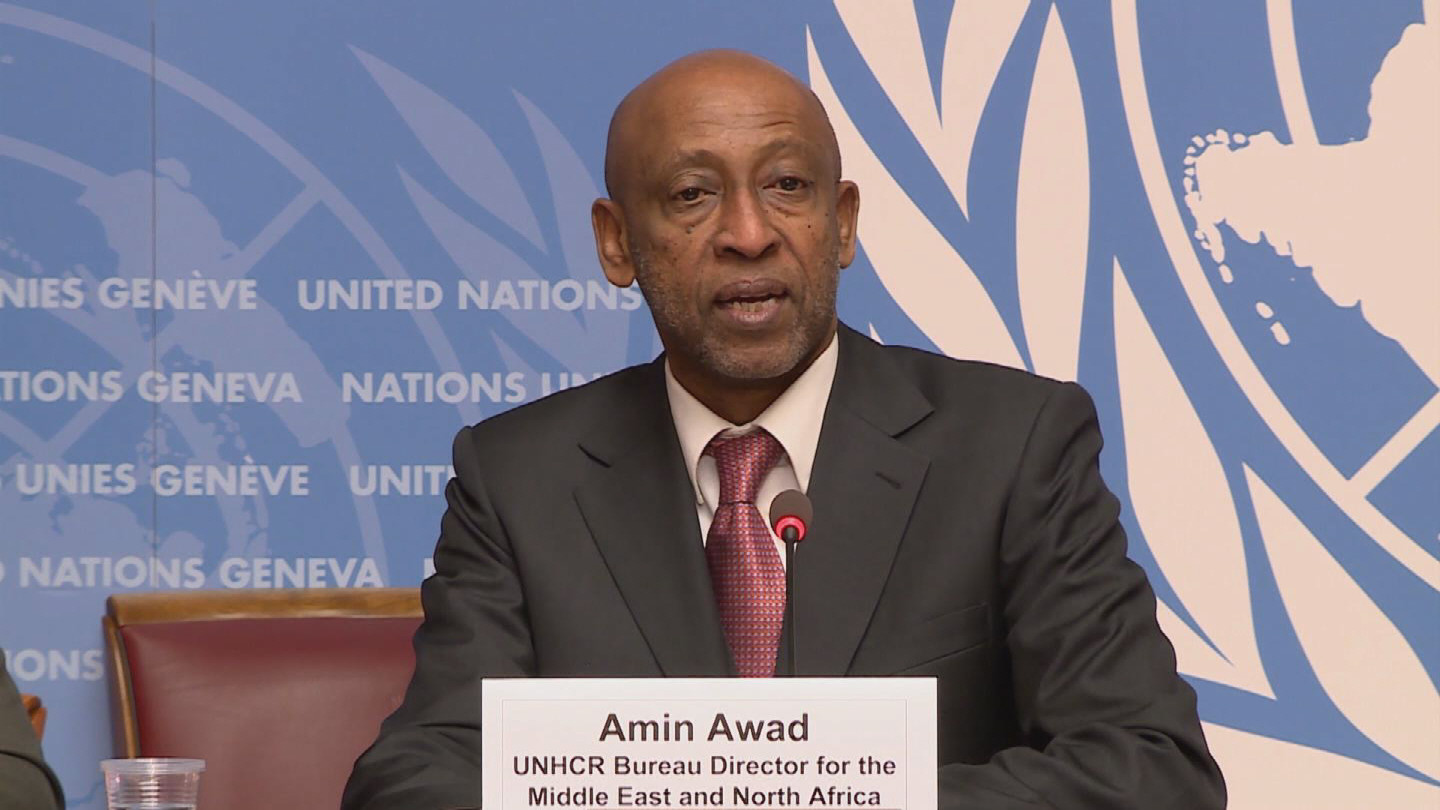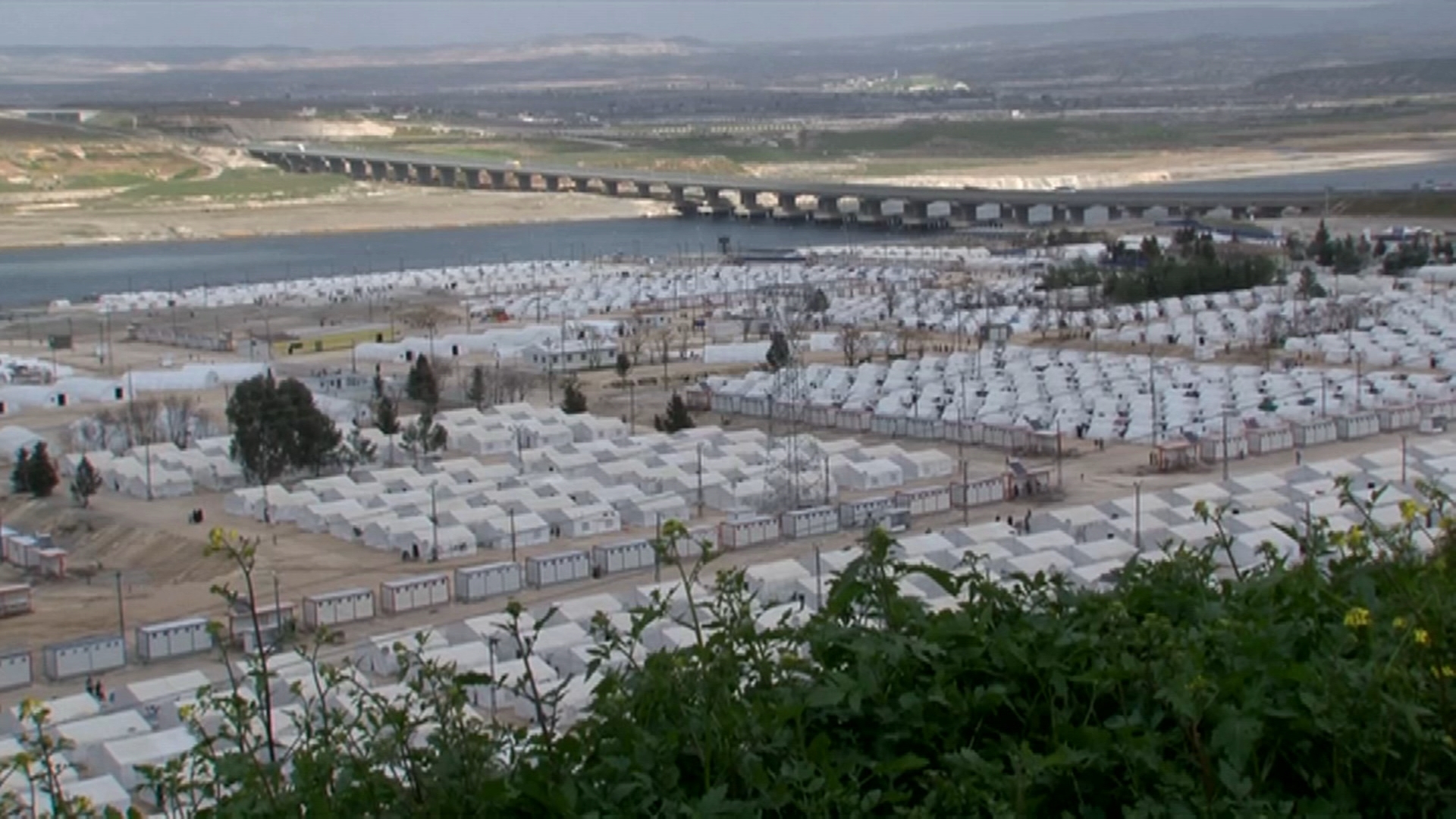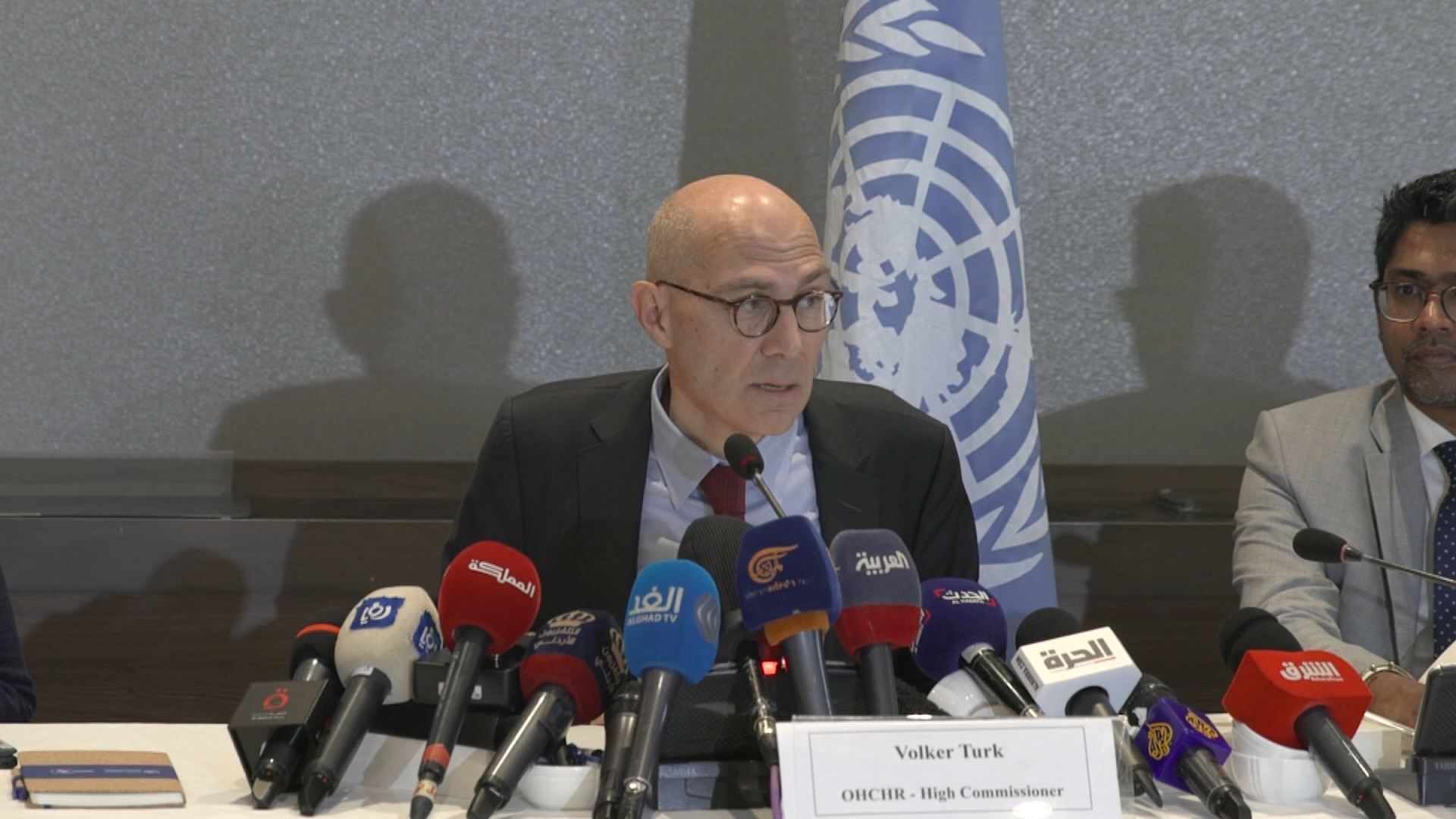IMF / MIDDLE EAST CENTRAL ASIA
Download
There is no media available to download.
Share
STORY: IMF / MIDDLE EAST CENTRAL ASIA
TRT: 02:22
SOURCE: IMF
RESTRICTIONS: NONE
LANGUAGE: ARABIC / ENGLISH / NATS
DATELINE: 21 APRIL 2017, WASHINGTON DC
21 APRIL 2017, WASHINGTON DC
1. Wide shot, press briefing room
2. Med shot, journalists
3. SOUNDBITE (English) Jihad Azour, Director of Middle East and Central Asia Department, International Monetary Fund (IMF):
“One of the main issues that we are focusing on after the first wave of reforms that were introduced under the program that brought, as you know, very strong confidence back into the Egyptian economy, and that was translated into strong capital inflows and have stabilized the economic situation. Now, the main focus is on how to bring inflation down. Bringing inflation down is priority, not only for monetary policy management, but also for economic and social issues.”
4. Close up, journalist asking question
5. SOUNDBITE (Arabic) Jihad Azour, Director of Middle East and Central Asia Department, International Monetary Fund (IMF):
“The issue of displacement (refugees) has put pressure, not only from a humanitarian perspective, but also on the economic situation and has created additional challenges for the monetary authorities to manage the economic situation. No doubt, Jordan is also suffering due to inability to benefit from the trade with neighbouring countries such as Iraq and others. The program that was put in cooperation with the government of Jordan is to support the program of the government. There are reforms that have to do with the budget and the first factor was expanding the revenue base because the main problem suffered by Jordan and other countries in the region is that there is focus, there is vulnerabilities in the revenues. We need to expand the base of revenues so that there would be a larger participation. The best way is through two factors: the first one is gradually eliminating what we call the special cases and exceptions that are embedded in the tax system to broaden the tax base and increase the number of tax payers. At the same time, This would help us lessen the burden on limited income people and the Fund did not put forward any suggestion; on the contrary, in regards to removing subsidies on food such as bread and others.”
6. Med shot, journalists
7. Wide shot, dais
The International Monetary Fund discussed regional economic issues in the Middle East and Central Asia on Friday. While the outlook for the region is better, the IMF warned there are lingering risks.
Jihad Azour, the director of the IMF’s Middle East and Central Asia Department, weighed in with his assessment of Egypt’s reform efforts.
SOUNDBITE (English) Jihad Azour, Director of Middle East and Central Asia Department, International Monetary Fund (IMF):
“One of the main issues that we are focusing on after the first wave of reforms that were introduced under the program that brought, as you know, very strong confidence back into the Egyptian economy, and that was translated into strong capital inflows and have stabilized the economic situation. Now, the main focus is on how to bring inflation down. Bringing inflation down is priority, not only for monetary policy management, but also for economic and social issues.”
Syria’s continued conflict has had economic spillover effects on Syria’s neighbors. Particularly Jordan, which is facing the humanitarian needs of refugees.
SOUNDBITE (Arabic) Jihad Azour, Director of Middle East and Central Asia Department, International Monetary Fund (IMF):
“The issue of displacement (refugees) has put pressure, not only from a humanitarian perspective, but also on the economic situation and has created additional challenges for the monetary authorities to manage the economic situation. No doubt, Jordan is also suffering due to inability to benefit from the trade with neighbouring countries such as Iraq and others. The program that was put in cooperation with the government of Jordan is to support the program of the government. There are reforms that have to do with the budget and the first factor was expanding the revenue base because the main problem suffered by Jordan and other countries in the region is that there is focus, there is vulnerabilities in the revenues. We need to expand the base of revenues so that there would be a larger participation. The best way is through two factors: the first one is gradually eliminating what we call the special cases and exceptions that are embedded in the tax system to broaden the tax base and increase the number of tax payers. At the same time, This would help us lessen the burden on limited income people and the Fund did not put forward any suggestion; on the contrary, in regards to removing subsidies on food such as bread and others.”
